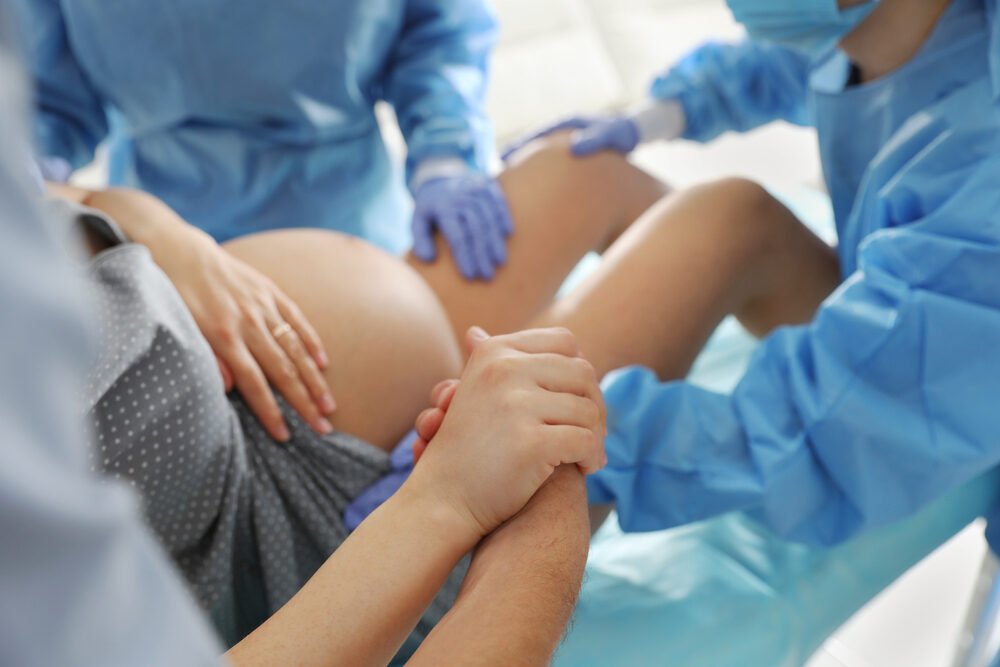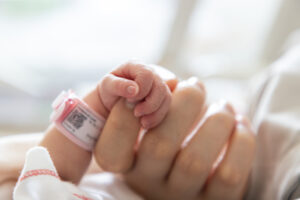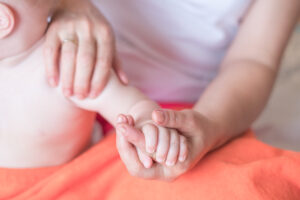
By some estimates, for every 1,000 babies born in the United States, there are six to eight babies who suffer a birth injury during the process. While many infants overcome birth injuries, others are left with permanent ones requiring families to face not only emotional distress but severe financial strain as they raise a child who needs long-term care.
While a birth defect generally is due to an abnormality formed when the baby is in utero, a birth injury is recognized as an error by the delivering doctor or someone on the medical team during the labor and delivery process. Birth injuries can range from fractures and broken bones to more severe injuries like brain swelling and cerebral palsy. Factors that can lead to birth injuries include instruments used in deliveries (especially forceps or vacuums), a depletion of oxygen, breech deliveries, excessive traction, and difficulties associated with a large birth weight.
As mentioned above, some birth injuries cause permanent damage, lasting a lifetime, and the cost of raising a child with a severe birth injury can become debilitating. Children may need continuous medical treatments and multiple surgeries, nurses who provide partial or full-day care, and perhaps a residence with a specialized design for easy mobility including wide doorways and stair lifts. As they grow from an infant into a teen and then into an adult, they may require changes to their medical equipment, prosthetics, and other support.
Families deserve – and need – to receive compensation for birth injuries brought on by medical malpractice. What financial options are available for families with a child who suffers a birth injury? Numerous programs can help, but the first step should be to explore possible legal recourse.
Birth Injury Lawsuits
The first step is to determine if a birth injury was caused by medical negligence. Parents should reach out to a birth injury lawyer as soon as possible. A lawyer will determine what avenue is best for the victim and their family to receive the necessary financial support for the harm done in the delivery room.
The main avenue for financial support when negligence is the cause is typically through a birth injury lawsuit. Although some are hesitant to take legal action, parents should be aware they deserve the compensation, for both the suffering they have already endured as well as for the difficult financial road that lies ahead.
An experienced birth injury lawyer will build a case, understanding the birth experience from the family’s perspective and ensuring any questions they have are answered. A lawyer will also gather information from the hospital, including details from the doctor, medical records, and other accounts from the medical team, determining if the expected standard of care was met by the medical professionals.
Once the information has been collected and reviewed, the attorney can determine whether or not a birth injury lawsuit should be filed, and if so, how much compensation would be required for a fair settlement.
What Is the Virginia Birth Injury Program?
Besides a birth injury lawsuit, there are non-profit organizations and state and federal programs that offer assistance for children who are seriously disabled due to a birth injury. For example, parents in Virginia have the Virginia Birth Injury Program as an avenue to explore. Almost 40 years ago, lawmakers signed into law the Virginia Birth-Related Neurological Injury Compensation Act due to issues obstetricians were having with malpractice insurance.
The law removed birth-related neurological injuries from the tort system and put them under a program similar to workers’ compensation programs. Most often referred to as the Virginia Birth Injury Program, it provides financial support for infants with severe neurological injuries resulting either from “oxygen deprivation or mechanical injury” during birth or immediately after delivery.
The covered services for an awarded claim include medical and hospital bills, appointments, travel expenses for medical appointments, rehabilitation and therapy, residential and custodial care, equipment, and in some cases, attorney fees.
According to the program’s website, to be eligible “the child must be permanently motorically disabled and developmentally disabled or cognitively disabled,” and if a child’s injury is approved for coverage, the family is not entitled to compensation from a medical malpractice lawsuit.
The program also has additional requirements including the following:
- The child must have been delivered by a participating doctor or hospital and suffered a birth-related neurological injury as defined by Virginia law.
- The child must require assistance with all daily living activities.
- A petition to enter the program may only be filed with the Virginia Workers’ Compensation Commission.
- Admission into the program is determined solely by the Virginia Workers’ Compensation Commission.
- For their part, the medical provider delivering the baby is required to disclose they are participating in the program.
Although a claimant in the program is not required to use a lawyer, having one can make the entire process easier, from managing the repercussions of the birth injury to understanding the ins and outs of completing and filing the petition to enter the Virginia Birth Injury Program. A lawyer can also move forward with filing a birth injury lawsuit on your behalf if you don’t qualify for the program. You can file a birth injury lawsuit or use the Virginia Birth-Related Neurological Injury Compensation Program, but not both.
When having a baby, parents expect a doctor and hospital will make sure they receive the best care possible. Unfortunately, that is not always the case and mistakes happen causing families to undergo emotional, physical, and financial hardship. Healthcare providers must be held accountable for injuries to patients due to medical malpractice or negligence. For information on filing a birth injury lawsuit, or to better understand how to receive compensation for a birth injury, contact the birth injury attorneys at Paulson & Nace at (202) 463-1999.

Samantha L. Peters focuses her practice in the areas of medical malpractice, personal injury, wrongful death, and other negligence claims.















Comments for this article are closed.